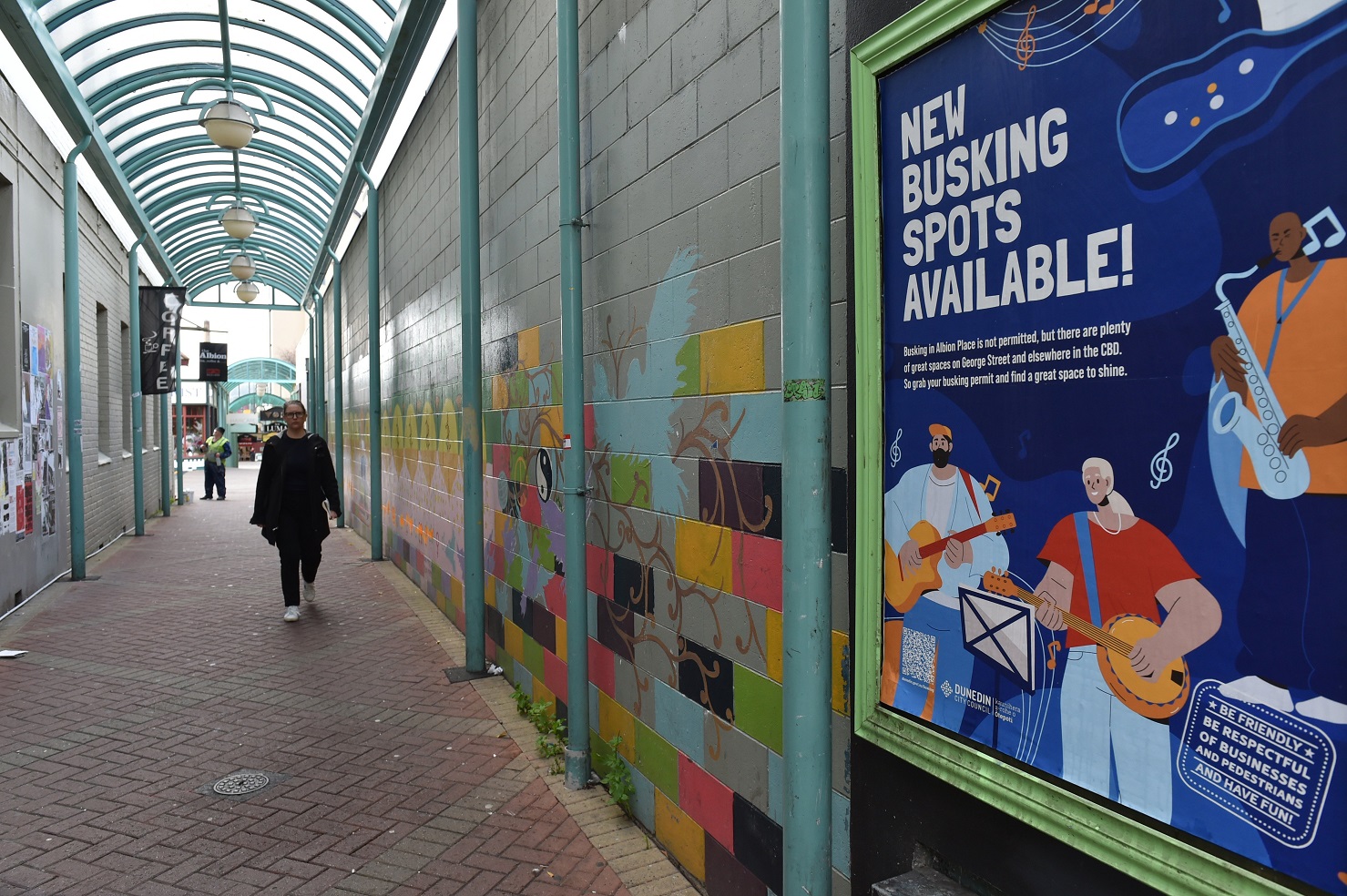
The Dunedin City Council banned buskers from Albion Lane after at least one business complained about anti-social behaviour.
This ranged from pedestrians being verbally abused to a homeless woman playing a guitar "that probably was last tuned 20 years ago".
But now the owner of an Albion Lane business has signed a petition calling for the ban to be lifted.
Former Dunedin Musicians Club vice-president and musician Luke Flanders said busking in Albion Lane went back "as far as I can remember" and he was frustrated by the blanket ban.
"You used to be able to busk pretty much anywhere with the permission of the store owner, and now we’ve got so few places.
"It’s stripping back the ability to make art in the city."
The acoustics and condensed traffic flow were reasons why a lot of people had chosen Albion Lane as a busking site, and he had known some people who had formed bands from connecting with buskers in the alleyway, he said.
"It wasn’t just about trying to get a little bit of extra pocket money, or survival money in some cases — there was a bigger picture."
Mr Flanders said he had heard rising homelessness and begging in the area had caused people to complain.
"It’s a shame that a social situation has denigrated the ability to create art in the city," he said.
The Albion cafe owner Jayde Regassa said she had witnessed a lot of busking in her nine years of running the alleyway cafe.
"Over that nine years there has been some absolutely fabulous buskers and there have been some incredibly horrendous ones."
Since work began on the upgrades to George St, a lot of the "instability of town [had] found the alleyway" and three years of antics had resulted in numerous calls to police, she said.
A few particular buskers frequently broke busking rules and abused passers-by, which had just got "too much" to keep dealing with.
One homeless woman would play a three-stringed guitar "that probably was last tuned 20 years ago" outside her cafe and would act aggressively towards pedestrians, she said.
Ms Regassa said she had previously submitted to the council, as part of its public places bylaw in 2020, about whether busking permit rules could be policed better.
Instead, a blanket ban had come into effect and it was "absolutely lovely" to no longer deal with those disorderly few.
But while the council had solved the hardest part of the situation, the ban had negatively affected those who did follow the rules, she said.
"I’m grateful that they have done something ... but it has definitely affected that atmosphere of the alleyway.
Ms Regassa said a petition had been circulating to lift the busking ban on Albion Lane, which she had signed.
A council spokesman said engagement with street performers began around Easter. Buskers needed to provide a 3m-wide corridor for pedestrians, including those with disabilities, when performing.
"Unfortunately, due to the size and shape of Albion Lane, it is very difficult for street performers to comply with this requirement when busking there."
While busking was no longer permitted in Albion Lane, there were plenty of places for buskers to perform in Dunedin, including the now wider and more people-friendly footpath and new performance stages in George St, the spokesman said.











